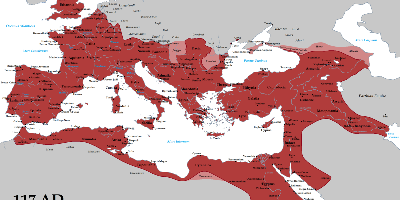Dictatorship of Gaius Julius Iulus (1 janv. 352 av. J.-C. – 31 déc. 352 av. J.-C.)
Description:
Gaius was nominated dictator some fifteen years after the passage of the lex Licinia Sextia, the law which opened the consulship to the plebeians, by requiring that one of the consuls should be a plebeian. But in the years that followed, the patricians had made every effort to skirt the law, and elect two patricians. Both consuls had been patricians in 355, 354, and 353 BC, and the patricians were determined to elect two of their number once more for 352.The tribunes of the plebs blocked the elections from being held until the senate agreed to put forward candidates in accordance with the Licinian law. Meanwhile, the dictator, Titus Manlius Torquatus, would not permit the elections to be held if plebeian candidates were allowed; thus, the elections could not be held until after the dictator's term of office had expired, and even then an interrex had to be appointed, as the senate and the tribunes could not agree to the terms. Under Roman law, the interrex was required to resign his office after five days, and another was appointed; then another, and another, until eleven interreges had been appointed.
Faced with growing unrest, the senate finally directed the interrex Lucius Cornelius Scipio to observe the Licinian law. As a result, a plebeian, Gaius Marcius Rutilus, who had previously held the consulship in BC 357, was elected alongside the patrician Publius Valerius Poplicola. Vexed by their defeat, the patricians resolved to defy the law once more in the elections for 351, and they nominated Gaius Julius Iulus dictator, on the pretext that twelve Etruscan cities had formed an alliance to oppose Rome. As his magister equitum, Julius nominated Lucius Aemilius Mamercinus.
It soon became apparent that there was no impending hostility from Etruria, as the rumor of an alliance had been false. The dictator was unable to secure the election of two patrician candidates, but the patricians were not yet ready to accept defeat. Following Julius' resignation, Gaius Sulpicius Peticus was appointed interrex; he too failed to procure the desired result, but his successor, Marcus Fabius Ambustus, succeeded, and two patricians were elected in violation of the Licinian law.
Ajouté au bande de temps:
Date:
1 janv. 352 av. J.-C.
31 déc. 352 av. J.-C.
~ 12 months
